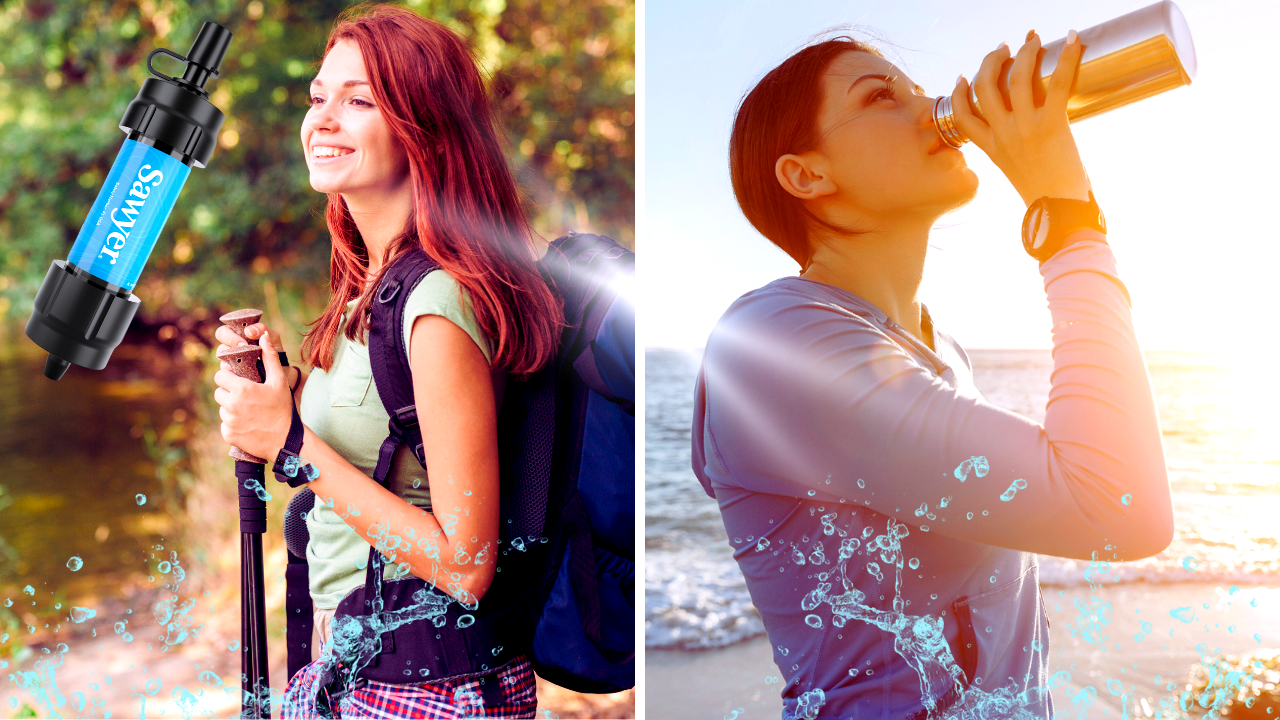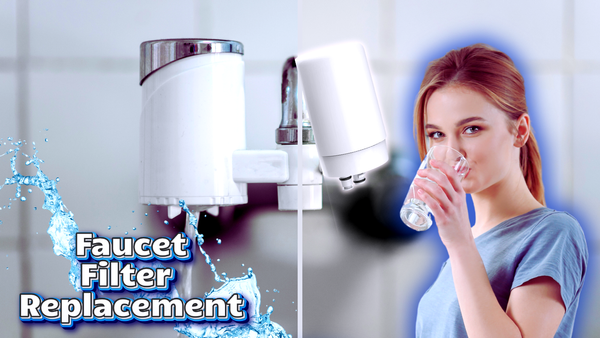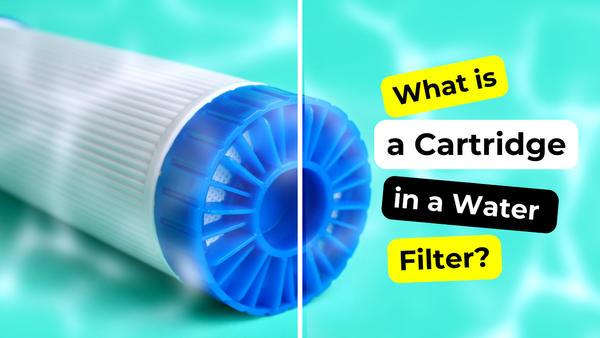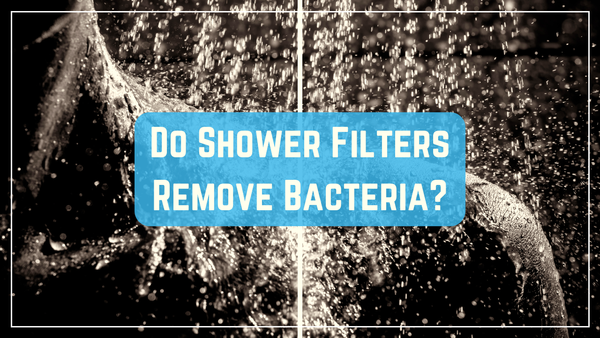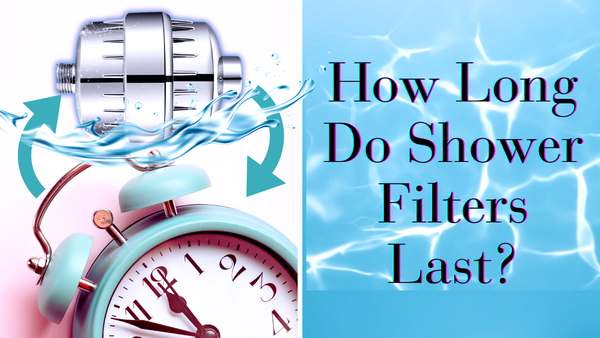Key Takeaways:
- Portable water filters are essential for safe drinking water in various situations, from outdoor adventures to emergency preparedness.
- Different portable water filters, such as pump filters, hollow fiber filters, and activated carbon filters, offer unique benefits and are suitable for different needs.
- Understanding the features and limitations of each type of portable water filter can help you choose the best option for your specific requirements.
In today’s fast-paced world, ensuring access to clean and drinkable water is more important than ever. Whether hiking in the wilderness, traveling abroad, or preparing for emergencies, a portable water filter can be a lifesaver. But what exactly is a portable water filter, and how does it work? This comprehensive guide will delve into the intricacies of portable water filters, exploring their types, benefits, and best practices.
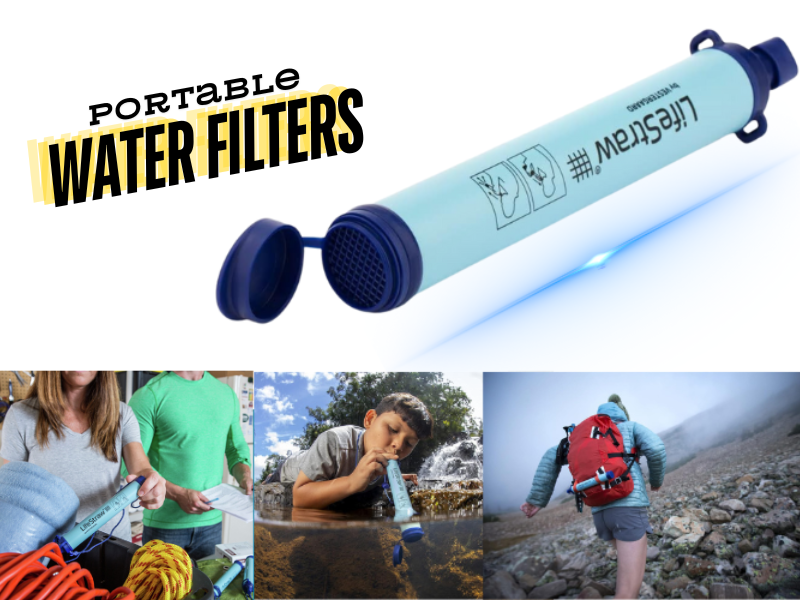
The Basics of Portable Water Filters
Portable water filters are devices designed to remove contaminants from water, making it safe to drink. These filters are compact, lightweight, and easy to carry, making them ideal for outdoor activities, travel, and emergencies. They pass water through various filtration systems that trap and remove harmful substances.
The primary goal of a portable water filter is to provide clean drinking water by removing bacteria, protozoa, and other contaminants. Different filters use different technologies, such as activated carbon, hollow fiber membranes, and ultraviolet light, to achieve this goal. Understanding these technologies can help you choose the right filter for your needs.
Types of Portable Water Filters
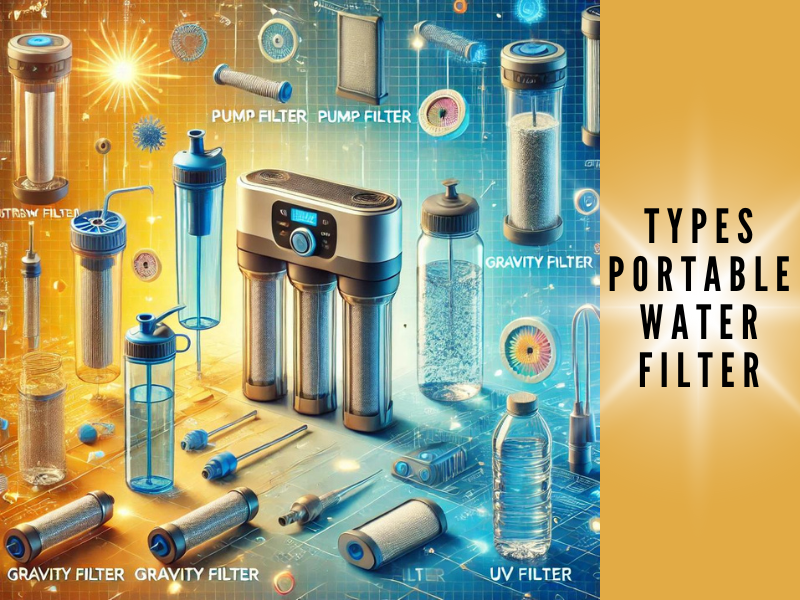
Pump Filters
Water filter system such as pump filters, are a popular choice for outdoor enthusiasts and travelers. These filters use a manual pump to force water through a filtration system, removing contaminants in the process. Pump filters are effective at removing bacteria, protozoa, and some chemicals, making them suitable for various water sources.
One of the main advantages of pump filters is their ability to quickly filter large quantities of water. This makes them ideal for group camping trips or situations where you must filter water for multiple people. However, they can be bulky and require some effort, which may be a drawback for solo travelers or those looking for a more compact solution.
Hollow Fiber Filters
Hollow fiber filters use a network of tiny tubes with microscopic pores to filter water, making the hollow fiber filter highly effective at removing a high percentage of bacteria, viruses, and parasites. As water passes through these tubes, contaminants are trapped, allowing only clean water to flow through. These filters are highly effective at removing bacteria and protozoa, making them a reliable choice for outdoor adventures.
One of the key benefits of hollow fiber filters is their lightweight and compact design. They are easy to carry and can be used with various water sources, including streams, lakes, and tap water. However, they may not be as effective at removing chemicals and heavy metals, so it’s important to consider the quality of the water you’re filtering.
Activated Carbon Filters
Activated carbon filters use a process called adsorption to remove contaminants from water. The activated carbon attracts and traps impurities, such as chlorine, lead, and unpleasant tastes and odors. These filters are commonly used in portable water bottles and other compact filtration systems.
Activated carbon filters are particularly effective at improving the taste and smell of water, making them a popular choice for travelers and everyday use. However, they may not be as effective at removing bacteria and protozoa, so they are often used in combination with other filtration methods for comprehensive water purification.
How Portable Water Filters Work
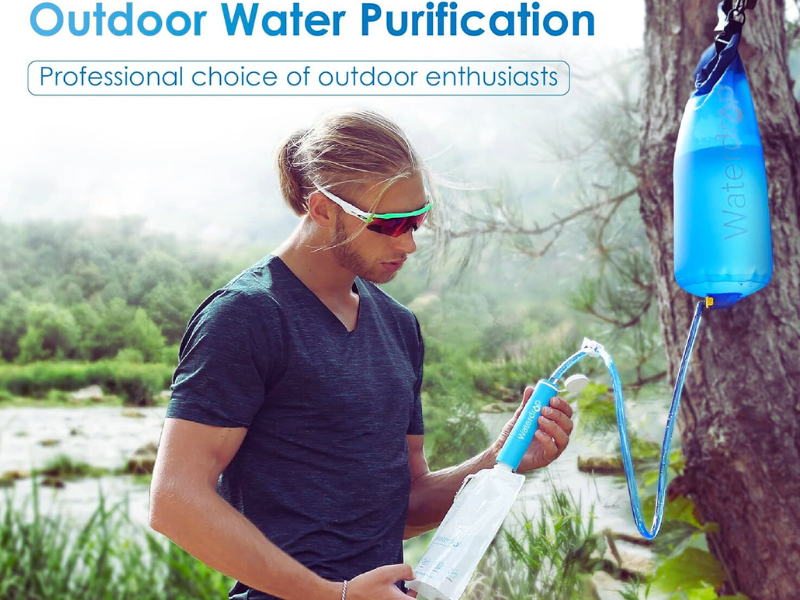
Filtration Mechanisms
Portable water filters use various mechanisms to remove contaminants from water. A pre-filter is often used to remove sediment, microplastics, and other particles that might not be visible to the naked eye. These mechanisms include physical filtration, chemical adsorption, and ultraviolet light. Each method has its strengths and weaknesses, and understanding how they work can help you choose the best filter for your needs.
Physical filtration involves passing water through a porous material that traps contaminants. This method is effective at removing larger particles, such as dirt and sediment, as well as bacteria and protozoa. Hollow fiber filters and ceramic filters are examples of physical filtration systems.
Chemical Adsorption and UV Light
Chemical adsorption involves using materials like activated carbon to attract and trap impurities. This method is effective at removing chemicals, heavy metals, and unpleasant tastes and odors. Activated carbon filters are a typical example of chemical adsorption systems.
Ultraviolet (UV) light is another method used in portable water filters. UV light kills bacteria, viruses, and other microorganisms by disrupting their DNA. This method is highly effective at ensuring safe drinking water, but it requires a power source and may not be suitable for all situations.
Benefits of Using Portable Water Filters

Ensuring Safe Drinking Water
One of the primary benefits of using a portable water filter is ensuring access to safe, filtered water. Whether you’re hiking in the wilderness or traveling to a country with questionable water quality, a portable water filter can provide peace of mind by removing harmful contaminants.
Portable water filters are designed to remove bacteria, protozoa, and other microorganisms that can cause illness. This makes them an essential tool for outdoor enthusiasts, travelers, and anyone who wants to ensure the safety of their drinking water.
Convenience and Portability
Another significant benefit of portable water filters is their convenience and portability. These filters are compact and lightweight, making them easy to carry in a backpack, suitcase, or emergency kit. This makes them ideal for a wide range of situations, from camping trips to natural disasters.
Portable water filters are also easy to use, with many models requiring minimal setup and maintenance. This makes them a practical solution for anyone who needs access to clean drinking water on the go.
Choosing the Right Portable Water Filter
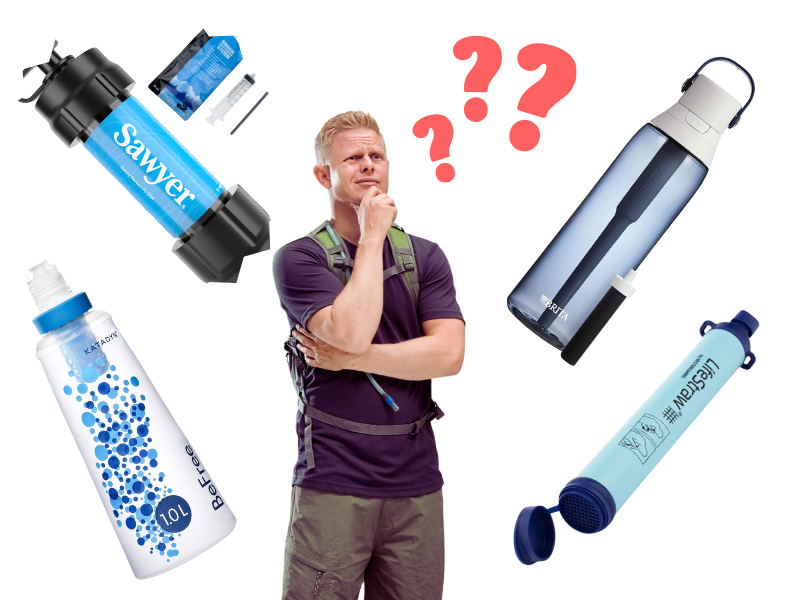
Assessing Your Needs
When choosing a portable water filter, it's important to assess your specific needs and requirements. Consider factors such as the type of water you'll be filtering, the quantity of water you need, and the level of contaminants you're concerned about. This will help you choose a filter that meets your needs and provides the best protection.
For example, if you're planning a long hiking trip, you may need a filter that can handle large quantities of water and remove a wide range of contaminants. On the other hand, if you're traveling to a country with questionable tap water, a compact filter with chemical adsorption capabilities may be more suitable.
Comparing Different Filters
Once you’ve assessed your needs, it’s time to compare different portable water filtration systems. Look for filters that offer the features and capabilities you need, and read reviews from other users to get an idea of their performance and reliability. This will help you make an informed decision and choose a filter that meets your expectations.
Consider factors such as the filter’s flow rate, ease of use, and maintenance requirements. Some filters may require regular cleaning or replacement of filter elements, while others may have a
Best Practices for Using Portable Water Filters
Proper storage is also crucial for maintaining the effectiveness of your portable water filter. Store the filter in a clean, dry place when not in use, and avoid exposing it to extreme temperatures or direct sunlight. This will help prevent damage and ensure that the filter is ready to use when you need it.
If you're storing the filter for an extended period, consider removing the filter elements and storing them separately. This can help prevent mold and bacteria growth and ensure that the filter remains in good condition.
Common Contaminants in Water
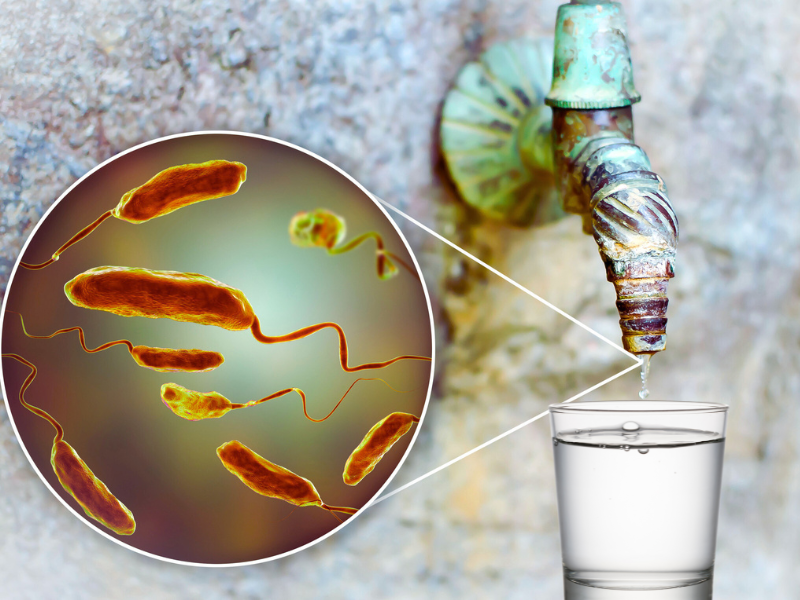
Bacteria and Protozoa
Bacteria and protozoa are common contaminants found in natural water sources, such as rivers, lakes, and streams. These microorganisms can cause a range of illnesses, from mild gastrointestinal issues to more severe infections. Portable water filters are designed to remove these contaminants, ensuring that the water is safe to drink.
Hollow fiber filters and ceramic filters are particularly effective at removing bacteria and protozoa, thanks to their small pore size. These filters trap the microorganisms, preventing them from passing through and contaminating the water.
Chemicals and Heavy Metals
In addition to microorganisms, water can also be contaminated with chemicals and heavy metals. These contaminants can come from various sources, including industrial pollution, agricultural runoff, and old plumbing systems. Portable water filters with activated carbon elements are effective at removing these impurities, improving the taste and safety of the water.
Activated carbon filters work by adsorbing chemicals and heavy metals, trapping them within the filter material. This makes them a valuable tool for travelers and anyone concerned about the quality of their drinking water.
The Importance of Water Quality

Health and Safety
Water quality is crucial for health and safety. Contaminated water can cause a range of illnesses, from mild gastrointestinal issues to more severe infections and long-term health problems. Ensuring access to clean drinking water is essential for maintaining good health and preventing waterborne diseases.
Portable water filters play a vital role in improving water quality by removing harmful contaminants. Whether you're hiking in the wilderness or traveling to a country with questionable water quality, a portable water filter can provide peace of mind and protect your health.
Environmental Impact
In addition to health and safety, water quality also has a significant impact on the environment. Contaminated water can harm ecosystems, affecting plants, animals, and aquatic life. By using portable water filters, you can help reduce the environmental impact of water pollution and contribute to the preservation of natural resources.
Portable water filters are also a more sustainable option compared to bottled water. By filtering and purifying water on the go, you can reduce your reliance on single-use plastic bottles and minimize your environmental footprint.
Portable Water Filters for Different Situations
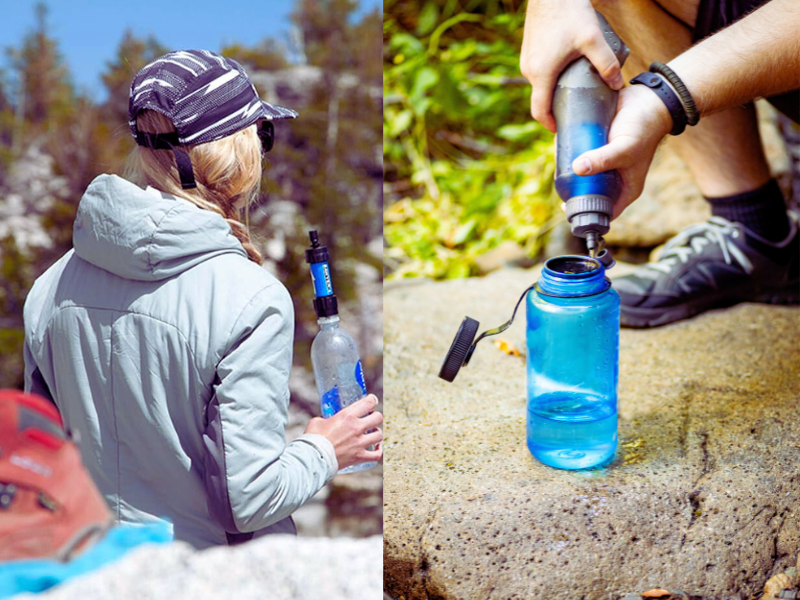
Outdoor Adventures
For outdoor enthusiasts, portable water filters are an essential tool for ensuring access to clean drinking water. Whether you're hiking, camping, or backpacking, a portable water filter can help you stay hydrated and healthy by removing contaminants from natural water sources.
Pump filters and hollow fiber filters are popular choices for outdoor adventures, thanks to their effectiveness and ease of use. These filters can handle large quantities of water and remove a wide range of contaminants, making them ideal for various outdoor activities.
Traveling Abroad
When traveling abroad, access to clean drinking water can be a concern, especially in countries with questionable water quality. Portable water filters can provide peace of mind by removing contaminants from tap water and other water sources, ensuring that the water is safe to drink.
Activated carbon filters and UV light filters are popular choices for travelers thanks to their compact design and effectiveness at removing chemicals and microorganisms. These filters can improve the taste and safety of the water, making them a valuable tool for international travel.
Emergency Preparedness
Natural Disasters
Clean drinking water can be hard to come by during a natural disaster. Portable water filters can be a lifesaver, keeping you hydrated and healthy in an emergency. They’re compact and easy to use, perfect for emergency kits and disaster preparedness.
Pump and hollow fiber filters are the most popular for emergency preparedness because they can filter lots of water and remove many contaminants. They’ll give you peace of mind and ensure you have clean drinking water when needed most.
Long-Term Storage
For long term storage you want a portable water filter with a long shelf life and minimal maintenance. Filters with unlimited shelf life are the most valuable because they’re durable and emergency ready. This means the filter will be effective and ready to use when you need it. Store the filter in a clean dry place and follow the manufacturer’s instructions for maintenance and storage.
Some portable water filters are designed for long-term storage and emergency use. They may have a longer shelf life and less maintenance, making them a practical choice for emergency preparedness.
Portable Water Filter Comparison
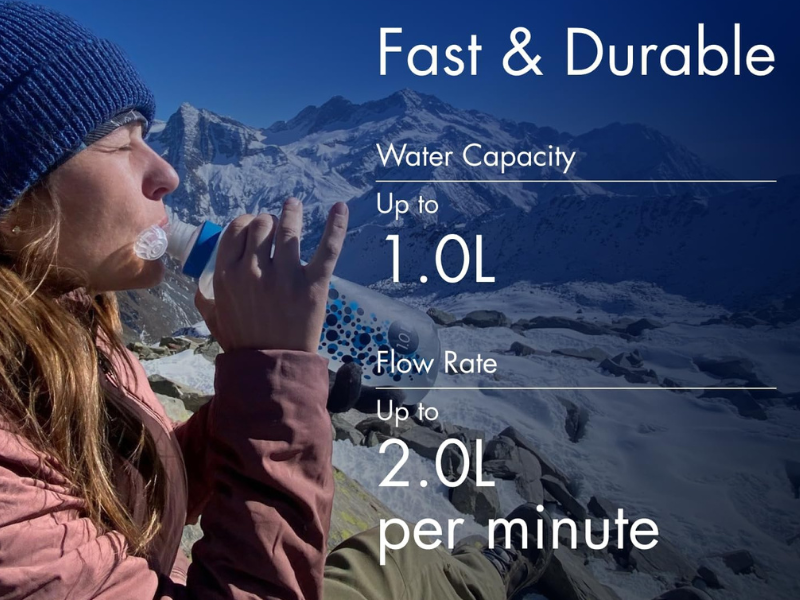
Flow Rate and Capacity
When comparing portable water filters consider flow rate and capacity. Water purifiers remove particulates, protists and viruses to make drinking water safe. Flow rate is how fast the filter can process water and capacity is how much water the filter can handle before maintenance or replacement. These factors affect the filter’s performance and suitability for different scenarios.
Pump filters have a higher flow rate and capacity, so they are best for filtering large amounts of water quickly. Hollow fiber and activated carbon filters have a lower flow rate and capacity but are more compact and lightweight, so they are good for solo travelers and everyday use.
Ease of Use and Maintenance
Another thing to consider when comparing portable water filters is ease of use and maintenance. Some filters need regular cleaning or replacement of filter elements, while others have a longer shelf life and less maintenance. Choose a filter that fits your lifestyle and preferences, and follow the manufacturer’s instructions for use and maintenance.
Look for setup time, portability and durability. A filter that’s easy to use and maintain will give you clean drinking water.
Case Studies: Real-Life Examples
Hiking in the Wilderness
John is an avid hiker who goes on multi-day trips in remote wilderness areas. Access to clean drinking water is a big deal, as natural water sources can be contaminated with bacteria, protozoa, and other nasties. John uses a pump filter, so he has access to safe drinking water throughout his trips.
The pump filter allows John to filter lots of water quickly, so it’s perfect for him. He can fill his water bottles and hydration pack and stay hydrated and healthy on his hikes. The filter’s effectiveness at removing contaminants gives John peace of mind so he can focus on enjoying his outdoor adventures.
Traveling to Developing Countries
Sarah is a frequent traveler and often visits countries where tap water is questionable. To have access to safe drinking water, Sarah uses an activated carbon filter with UV light. This combination removes chemicals, heavy metals, and microorganisms from tap water, making it safe to drink.
The filter is compact so Sarah can carry it in her luggage, and the UV light provides an extra layer of protection against bacteria and viruses. So Sarah can travel without worrying about waterborne illnesses, drink tap water, and stay hydrated.
Innovations in Portable Water Filters
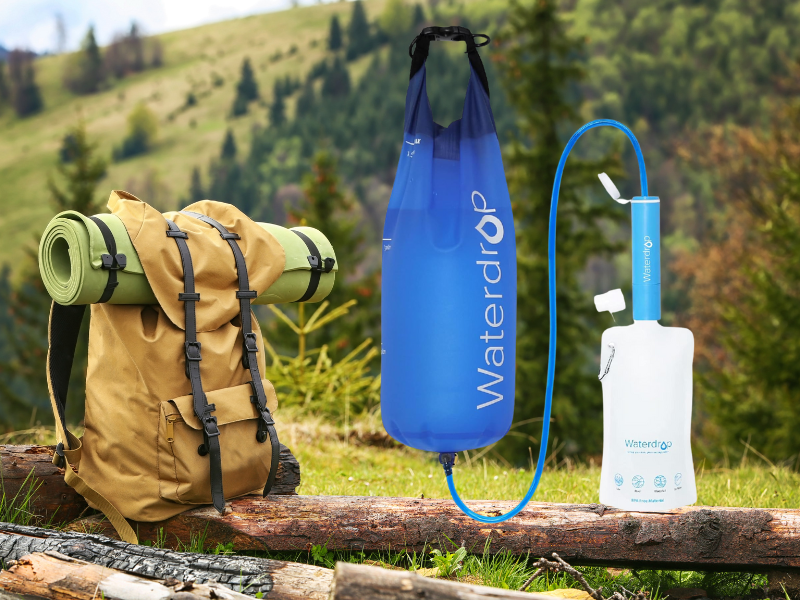
Advanced Filtration Technologies
The field of portable water filters is constantly evolving, with new technologies and innovations being developed to improve filtration performance and convenience. Advanced filtration technologies, such as nanofiltration and electroadsorption, are being explored to enhance the removal of contaminants and provide even safer drinking water.
Nanofiltration involves using membranes with extremely small pores to filter out contaminants at the molecular level. This technology can remove a wide range of impurities, including bacteria, viruses, and chemicals, providing a higher level of water purification. Electroadsorption uses electrical charges to attract and trap contaminants, offering another promising approach to water filtration.
Smart Water Filters
Another exciting innovation in portable water filters is the development of smart water filters. These filters have sensors and connectivity features that allow users to monitor water quality and filter performance in real-time. Smart water filters can provide valuable information, such as filter lifespan, flow rate, and contamination levels, helping users make informed decisions about their water consumption.
Smart water filters can also be integrated with mobile apps, providing users with notifications and alerts when it's time to replace filter elements or perform maintenance. This technology enhances the convenience and reliability of portable water filters, making it easier for users to ensure access to clean drinking water.
Environmental Impact
Reduce Plastic
One of the biggest environmental benefits of portable water filters is reducing plastic waste. By filtering and purifying water on the go, you can cut out single-use plastic water bottles, which contribute to pollution and environmental destruction. Portable water filters are a sustainable solution to reduce plastic waste and save the planet.
Many portable water filters are reusable and durable, so you can reduce your environmental impact even more. Invest in a good quality portable water filter and have clean drinking water while minimizing your footprint.
Supporting Conservation
In addition to reducing plastic waste, portable water filters can also support conservation by promoting water-wise use. By filtering and purifying water from natural sources, you can cut out bottled and tap water and conserve water resources.
Portable water filters can also raise awareness about water quality and conservation. By using these filters, you can become more aware of your water usage and take action to protect and preserve natural water sources.
Summary
Portable water filters are small, light weight devices that remove contaminants from water so you can drink it. They use physical filtration, chemical adsorption and ultraviolet light to do this. There are different types of portable water filters, pump filters, hollow fiber filters and activated carbon filters that offer different benefits and are suited for different needs.
Using a portable water filter means you have access to safe drinking water whether you’re hiking in the wild, traveling abroad, or preparing for emergencies. They are convenient, easy to use, and eco-friendly, making them a must-have for anyone who cares about water quality. For more tips and exclusive deals, subscribe to our newsletter!
FAQ
What is a portable water filter?
A portable water filter is a small, light weight device that removes contaminants from water so you can drink it. These filters use physical filtration, chemical adsorption and ultraviolet light to do this.
How do portable water filters work?
Portable water filters work by having water pass through a filtration system that traps and removes contaminants. Different filters use different technologies, activated carbon, hollow fiber membranes and ultraviolet light to do this. The technology used depends on the type of filter and what it’s designed to remove.
What are the benefits of a portable water filter?
Using a portable water filter means you have access to safe drinking water, convenience and eco friendly. Portable water filters remove harmful contaminants like bacteria, protozoa, chemicals and heavy metals so water is safe to drink. They are easy to carry and use so perfect for outdoor activities, travel and emergency situations. Plus they reduce plastic waste by reducing single use plastic water bottles.
